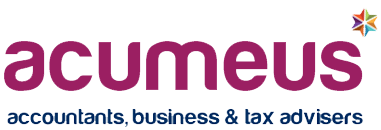In a surprising move, HMRC has kept the official rate of interest (ORI) for employee loans at a mere 2.25% for the 2024/2025 tax year. This presents a unique opportunity for company shareholders, especially when you consider:
- The current base interest rate stands at 5.25%
- HMRC’s late tax payment rate is a whopping 7.75%
This significant gap between the ORI and other rates is unusual. Back in 2007/2008, when base rates hovered around 5%, the ORI exceeded 6%. Today’s disparity opens up some intriguing financial planning possibilities, particularly for shareholders looking to refinance personal mortgages using company funds.
Understanding the Loan Rules
Before you rush to tap into your company’s coffers, here are the key points to remember:
- Interest-free loans over £10,000 at any point in the tax year will trigger a tax charge based on the ORI.
- For a £100,000 loan in 2024/2025, a shareholder in the 45% tax bracket would face a benefit charge of £2,250, resulting in £1,012 of tax.
- Don’t forget Section 455: Companies face a 33.75% corporation tax charge on loans outstanding nine months after the company’s year-end. (This is repayable when the loan is settled.)
Let’s look at how this could play out:
Sam’s £400,000 mortgage is up for renewal. His current 1.8% interest-only deal is about to jump to 4.7%. Sam’s company has £400,000 in cash, but he’s wary of the tax hit from taking a dividend. Instead, he opts to borrow £400,000 from the company.
The costs break down as follows:
- Sam’s personal tax on the beneficial loan: £4,050 (at 45% tax rate).
- Company’s employer’s NI: £621 (£466 after corporation tax).
Total annual cost: £4,500
Compare this to the £18,800 Sam would pay under the 4.7% mortgage deal, and the savings are clear.
While there’s a risk of a £135,000 tax charge under Section 455 if Sam doesn’t repay the loan within nine months after the company’s financial year ends, he plans to refinance when market interest rates become more favourable. Even if rates don’t improve, Sam will still have benefited from a period of low-cost borrowing.
Our analysis
Now more than ever, it makes sense for shareholders to consider financing short to medium-term needs through shareholder’s loans. Even after accounting for lost company investment returns, the savings can be substantial.
This strategy isn’t just for mortgages. Shareholders preparing for a company sale can use these “cheap loans” instead of dividends, potentially paying lower capital gains tax rather than income tax when the company is sold.
This strategy works because the buyer typically includes loan receivables in the purchase price. The shareholder can then repay these loans from the sale proceeds, effectively converting them into capital gains.
For help with any aspects of loans to participators, please get in touch with our specialist tax advisor. Please click here to book a consultation.
Disclaimer: This blog is accurate as of the publication date and is intended for general informational purposes only. It does not constitute legal or professional advice. Please seek independent professional advice.

